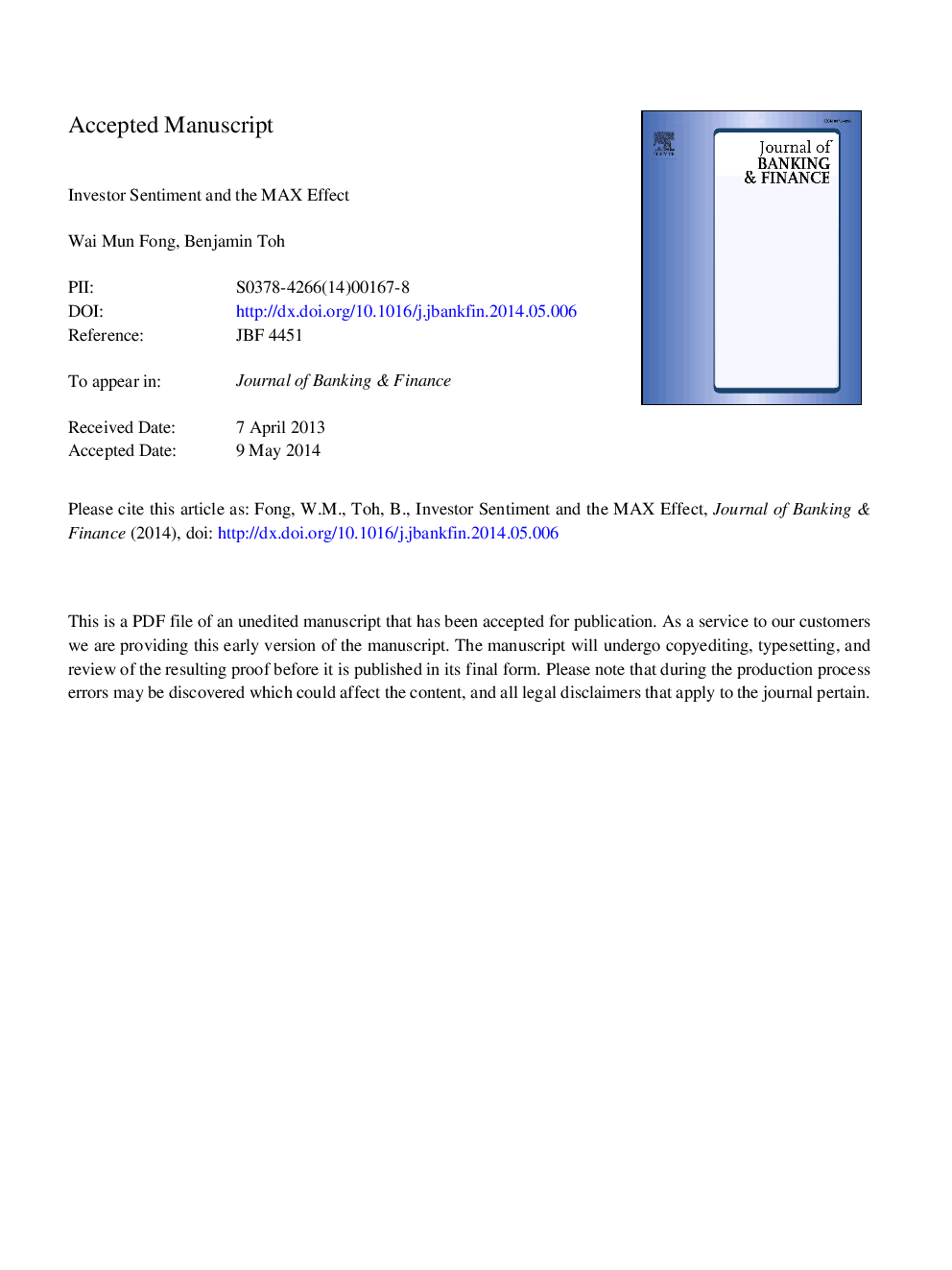| Article ID | Journal | Published Year | Pages | File Type |
|---|---|---|---|---|
| 5088822 | Journal of Banking & Finance | 2014 | 51 Pages |
Abstract
Bali et al. (2011) uncover a new anomaly (the “MAX effect”) related to investors' desire for stocks with lottery-like payoffs. Specifically, stocks with high maximum daily returns (high MAX) over the past month perform poorly relative to stocks with low maximum daily returns (low MAX) over the past month. We show that the MAX effect is strongly dependent on investor sentiment and is mainly due to the poor performance of high MAX stocks rather than high returns of low MAX stocks. Investors' desire to gamble in high MAX stocks is not limited to individual investors but is also present amongst some institutions. Controlling for past sentiment reduces the significance of the MAX effect. Our findings provide a behavioral underpinning to recent “optimal beliefs” theories (Brunnermeier et al., 2007) where investor optimism generates a preference for lottery-type securities.
Related Topics
Social Sciences and Humanities
Economics, Econometrics and Finance
Economics and Econometrics
Authors
Wai Mun Fong, Benjamin Toh,
